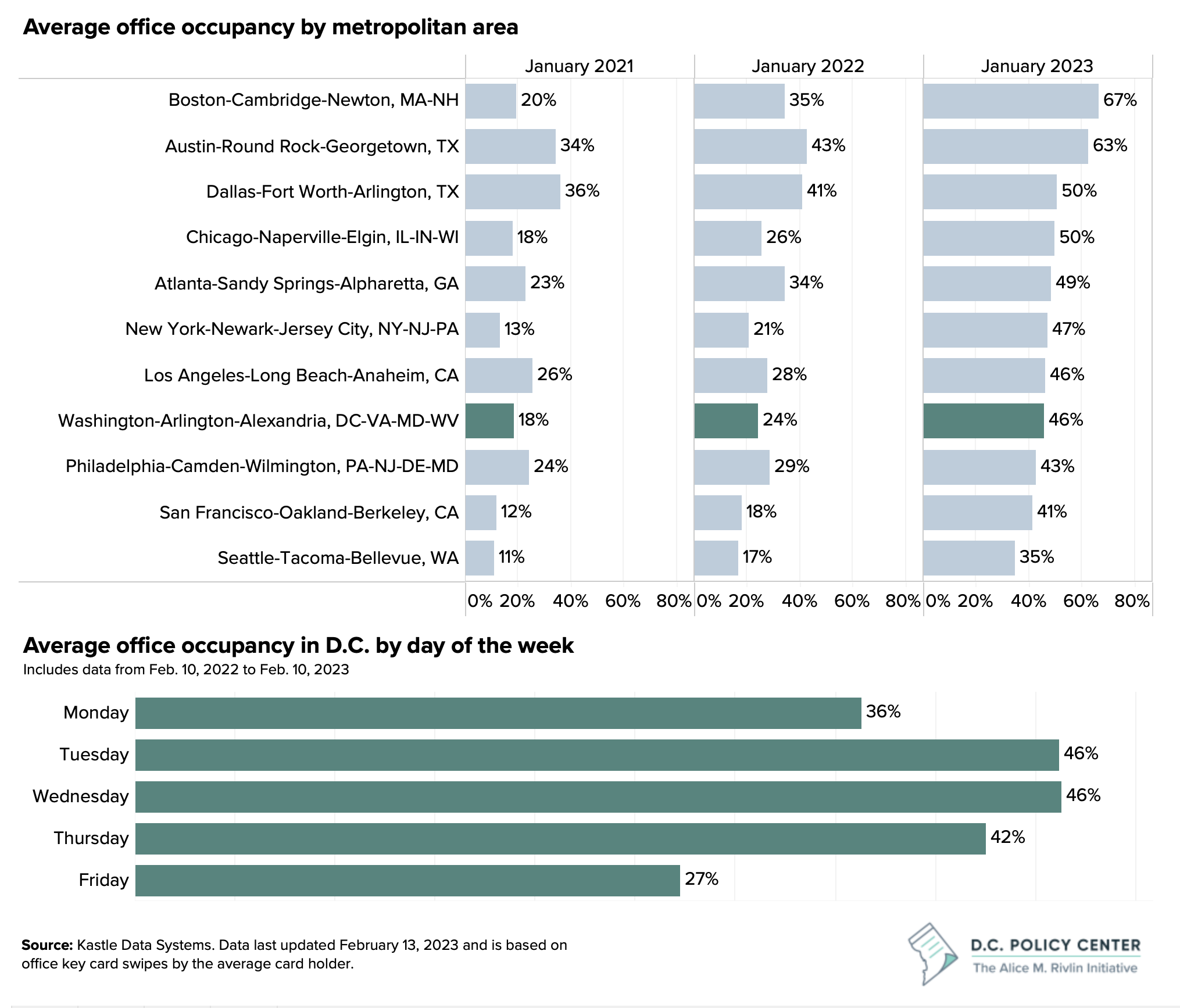
GOOD NEWS FOR DOWNTOWN: Office occupancy rates in the region nearly doubled last year, from 24 percent In January 2022 to 46 percent In January 2023.
BAD NEWS: As of last month, D.C.’s office occupancy remains 54 percent below pre-pandemic levels.
The Washington metropolitan area’s office occupancy rate1 nearly doubled between January 2022 and 2023. Though more people are coming into the office, office occupancy still remains 54 percent below pre-pandemic levels.
While the Washington metropolitan area has an occupancy rate below many other large metropolitan areas, this trend is not wholly unique to our region. As we enter the fourth year of the pandemic, it seems likely that hybrid-work schedules will become a long-term trend in D.C.:
- Tuesdays and Wednesdays have the highest occupancy rates.
- Friday occupancy is below one third of pre-pandemic levels.
- Monday occupancy is less than 40 percent of pre-pandemic levels.
Average office occupancy by day of the week in D.C. has been stable since the publication of our report on remote work and the future of D.C. in May 2022. People are still working from home, and as predicted in the report, the city will have to adapt to a future with less commuters and a shift of economic activity away from office-dense areas.
What do these continuing remote and hybrid work trends mean for the District?
Hybrid work schedules continue to remain popular with most remote-eligible workers coming into the office 2 to 3 days per week. And, office vacancy rates remain high. As of Q4 2022, office vacancy rate is 17.3 percent in the central business district.2 Thus, remote work trends still present a risk to D.C.’s future tax base. While the city cannot likely influence worker preferences and behavior, the best way for the city to maintain and grow its tax base in this new post-pandemic environment is to double down on retaining existing and attracting new residents.
